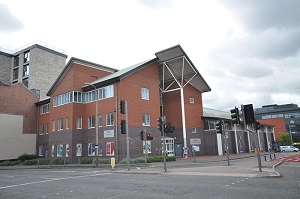News & views
East Midlands Chamber’s response to Coronavirus
5 June 2020

The below summary details the concerns and activity fed back during the week ending 22 May. It also reflects the results of the British Chambers’ of Commerce’s weekly Coronavirus Business Impact Tracker, which provides an up-to-date snapshot of the issues that businesses are facing on the ground.
East Midlands Chamber (Derbyshire, Nottinghamshire, Leicestershire) has been working with members and partner organisations to collate feedback on how businesses locally have been responding to the challenges posed by the coronavirus, and the Government support being made available.The Chamber continues to offer support and information to businesses. It has created a hub on its website to collate the latest information and intelligence, which can be viewed here.
In a week where more data started to emerge about the impacts that the coronavirus pandemic is having on the economy – in terms of employment figures showing national increases in the unemployment rate and the number of JSA Claimants – concerns were raised about how furloughing staff could be seen as a transition to redundancies, with businesses using the time to explore their options. Despite this, a level of business confidence was starting to become apparent in some sectors, where increased recruitment was seen, particularly at senior level in finance and marketing.
The BCC’s national Coronavirus Business Impact Tracker, based on polling conducted 13-15 May, found that most respondents (83%) reported high levels of awareness of Government’s new workplace guidance as sectors of the economy begin to reopen gradually.
Just over a third (37%) of respondents said they could fully restart operations by implementing the Government guidance, while 45% said they could do so partially. However, due to social distancing guidelines, it’s likely that many firms will see a reduction in demand and will not be able to restart at full capacity.
The tracker also showed that around 70% of respondents have furloughed a portion of their staff. Cash-poor firms, with less than three months’ cash in reserve, remain more likely to furlough portions of their workforce.
There also appeared to be a shift in the tone, language and outlook of many local businesses as they try to move into the first stages of restarting in a post-lockdown economy.
The messaging around the return to work, and what the ‘new normal’ might look like, needs to be clearer. Businesses need to be proactive to ensure their site is safe, per Government guidelines, which would allow individual employees the ability to decide if they are happy to come back until the guidance changes. Government, however, would need to make employers’ obligations clear as lockdown is phased out across different sectors.
Some of the issues individual businesses have raised with us over the past week are detailed below:
Case Studies
• A Broxtowe-based physiotherapist which is currently not training said that when it reopens, it will need appropriate facilities to dispose of PPE safely.
• A café/catering business in North East Derbyshire raised concerns about not having received any advice about how to reopen safely and ensure social distancing.
• A similar catering business to the above, in Derby, echoed the concern about reopening advice and also said it is feeling the strain financially, because it was just under the business rates threshold to qualify for the larger Coronavirus Leisure and Hospitality Grant.
• A mobile catering business, based in Bassetlaw, has lost virtually all of its revenue due to events and gatherings (such as weddings and funerals) being cancelled, but because it doesn’t have any fixed premises, it cannot access and financial support whatsoever.
• A social care provider in north Nottinghamshire claimed that the ineligibility of some businesses when applying for grant funding is unjustified and has created inequality. Its owners haven’t been able to claim anything, whereas some businesses operating two or more enterprises from the same commercial property have been able to access multiple grants.
• A social care provider says it has received conflicting information from Government and Public Health England and specific profession-related governing bodies to enable reopening and safely moving forward.
• A Mansfield-based manufacturer says it is having to switch operations and diversify and needs more support in finding a new client base.
• A Chesterfield-based property services provider says enquiries for residential rentals have held up well, but major land deals have been postponed and, in some cases, contracts are being revised with break provisions around Covid-19 effects.
• A traffic management and surveying company says the majority of its work is done through local authorities, which have suspended all their requirements until further notice. This also impacts its independent consultancy clients, which are unable to commission it to do surveys, as they too need permission from local authorities.
• A driver training company says it feels like its sector is key to helping people across the country learn to drive, yet it is among the last to receive any sort of support or assistance from Government. It is also likely to be among the last businesses that will be able to restart, as it works primarily on a one-to-one basis with customers, in a confined space.
Statistics
The above information was gathered from the 55 businesses that engaged with the Chamber during w/e 22 May 2020 and enquired specifically about the coronavirus support available. Of those businesses, 68% had between 1-4 employees, 13% had between 5-10, 16% had between 11-49 and three per cent had between 50-250. All bar one said they had already been impacted by the
coronavirus. 55% were limited companies, 34% were sole traders, five per cent were Limited Liability Partnerships and the rest were classified as charities.
There were no exporters, 40% served customers across the UK and the rest operated locally. 32% were B2B and 42% were B2C, with the remainder providing products and services to both. They came from a broad mix of sectors, including automotive, healthcare, retail, manufacturing, hospitality, wholesale and transportation.








